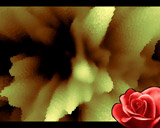Effects in demos that you don't know how they work
category: code [glöplog]
Thanks Kalms.
Hmm, any good papers on voxels, or do I have to figure it out by myself like the big boy that I am?
loaderror: that effect is available on the synthesis source ;)
winden : oh? :)
Quote:
You can get a one-pass solution, which is sort-of a mix of the linedrawing and the lookup-table approach:
but isnt that just a simple LUT-based polar conversion? it doesn't actually become a tunnel :/
Graga: I never found any decent paper or document about it. Maybe reading the comments on some nice source code is the best you can get. Like voxlap or something.
i like this thread, with all the voxel effects and all. only made a slimey bar in the past, but being a big boy now i must take some time to try the ball and the tunnel.
how they fit it in ONLY 177kB ;___;
They use smaller bits.
yeah, i heard so too. instead of <bit>1</bit><bit>0</bit> like everyone else does, i heard that they optimised it to <bit1/><bit0/>. not standard of course, but it's damn small!
nice one Optimus
You can never go wrong with coder colours.
But of course..

=8]

=8]
I must admit that it looks good.
i see this is an old thread, though it would be fair for me to not start a new one since this is allready there. i looked fast through it and it was mentioned something about voxels. i mean those spherical voxels ive seen in demos like Ibiza Experience / Orange, is there a simple formula to convert from spherical->polar->cartesian or just spherical->cartesian. or is there some other clever trick to do just that conversion?
rudi: It's kind of a special voxel-landscape that gets warped. Instead of raycasting from from a point to a plane like you normally would, you raycast from a point to a cylinder, and compensate for the curvature of the ball when looking up the height. Then you do a polar distort.
There are plenty of demo effects I don't understand. It is always interesting to speculate how something could work.
hint: those ball-shaped bitmap distorts. btw, i still love how this thread is about voxelfx :)
kusma: i think i understand. maybe one could use the angle in polar to get the curvature for the ball. maybe one dont need spherical-coordinates at all then if its cylindrical.
if i am ever going to code one i need to figure it out on a piece of paper anyway. but nice to get some introductory material first :P
superplek: you mean those lens-balls over image effects?
if i am ever going to code one i need to figure it out on a piece of paper anyway. but nice to get some introductory material first :P
superplek: you mean those lens-balls over image effects?
yes, they are common in old mrock intros/demos. the ball, shade in the depth and the inverse ball on the edges. its closely related. this is all a puzzle.
haha, voxels beyond voxel landscapes are still unexplored territory on my account. i think i will dig deeper into this some day (tm)
how do you update per frame the amount of particles featured in mf real / kewlers and all recent fairlight demos?
is it by uploading data via textures and messing with it in the shaders? (which in my head would be slow per frame for texture uploads)
anyways, im with navis - metaballs are an interesting phenomena but i wouldn't use it in a demo :-)
is it by uploading data via textures and messing with it in the shaders? (which in my head would be slow per frame for texture uploads)
anyways, im with navis - metaballs are an interesting phenomena but i wouldn't use it in a demo :-)
rasmus: mf real has shader sources under data directory, feel free to look through them. They should give you a clue.
Rasmus, direct rendering to texture is pretty fast, most demos use it for post processing and think how many pixels there are on the screen :> And you don't have to upload at all, the textures can always stay on the VRAM with newer GLs and DXs.
